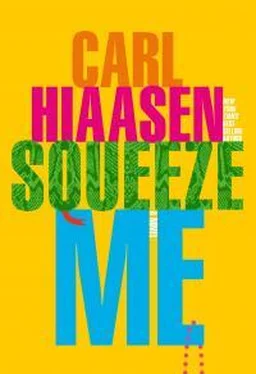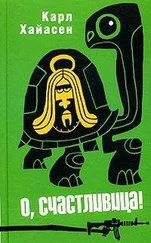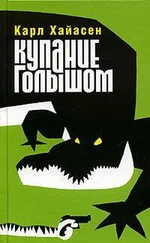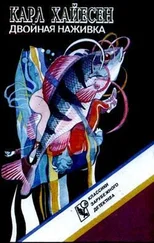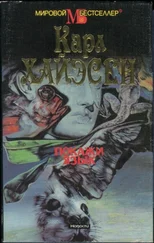As soon as he was freed, he crabbed into the bathroom, climbed up on the toilet seat, and knee-shut the door. Angie put on her canvas gloves and entered the bedroom, which had been newly redecorated in rose, pale blue, and white, as if a little girl lived there. The soft décor reflected charmingly on Pruitt’s worldly sister, though it also reminded Angie that she herself hadn’t gone on a shopping spree in years, possibly because she didn’t have any close female friends. Still there was no aching void in her life. She probably would have met some interesting women had she learned to play tennis, joined a gym, or gone down the yoga path, but she’d always preferred the unstructured Zen of solitary boat trips through the Ten Thousand Islands, or camping alone in a cypress forest. Moreover, she’d chosen a predominantly male occupation, and in any case covered so much territory that there was no central after-hours gathering spot to connect with colleagues and develop relationships. At the end of a day as a wildlife wrangler, all you wanted to do was go home, scrub off the stink, and dress your wounds.
When Angie stepped forward to extend the capture pole, the bobcat bounded from the Peloton to a bookshelf to the pleated window drapes, which turned to shreds during the struggle that followed. Afterward she hauled the thrashing animal through the apartment, pausing momentarily to rap on the bathroom door. Pruitt peeked out and quailed at the sight, a tawny blur of fangs and claws.
“Remember what I told you,” Angie said, “or I’ll come back here one night and put something way worse than this thing under your sheets.”
Pruitt answered with a slam of the door. Angie loaded her snarling detainee into the transport kennel and drove out the Bee Line to a stretch of pine scrub near the motorsports track, where she let it go.
Then she went home, showered, put on some normal clothes, and went to meet a man who was rumored to know a man who was rumored to be unusually comfortable among snakes.
—
He lived alone on a small tree island, surrounded by shimmering Everglades marsh. His camp couldn’t be seen from the air or water. Tall, lush hardwoods shaded the hammock when the weather was hot, and shielded it from biting north winds during the short so-called winter. The funky black soil that anchored the ferns and gumbo limbos stayed moist throughout the year.
Although the old man had only one good eye, he could navigate comfortably in the dark, sometimes guided by the lights of the big jets lining up to land at Miami International. He traveled in a flat-bottom johnboat powered by a small outboard, so it ran shallow and quiet through the creeks and saw grass prairies. There was nobody else for miles, anyway.
The man owned a diesel pickup, elevated for off-roading. He kept it at a Miccosukee village on the Tamiami Trail, a historic cross-state highway which the government belatedly was elevating in sections, to let more needed water flow south. The Indian settlement was only forty minutes by boat from the tree island. On Mondays and Fridays the man tied up to a piling, got into his truck, and drove to Dade Corners to meet his connection for frozen rabbits, which were shrink-wrapped on pallets over dry ice.
Other nights he cruised slowly up and down the narrow dirt levees, lamping the wetlands with supercharged LEDs racked on the roof and bumper of his truck. If he saw other hunters he pulled off to the side, rolled up his windows, yanked the shower cap down over his face, and pretended to be asleep. Often wildlife officers patrolled the same dikes, but they knew who the man was and they let him be. He owned none of the required licenses or permits; the only identification he carried was a counterfeit Arizona driver’s license bearing a photograph of Jackson Browne and the name George W. Hayduke Jr.
The predawn return drive to the Miccosukee settlement was usually devoted to collecting fresh road kills, mostly small gators and coons, that the old man would skin and salt for his own meals. If the bed of the truck was full, he piled the bloody carcasses next to him on the passenger side. Occasionally, when the traffic thinned, he would stomp the accelerator and lean his six-and-a-half-foot frame out the window crooning while he emptied a pistol into the sky. On those nights his silver beard was clotted black with mosquitoes by the time he reached the Indian docks. There he carefully transferred his cargo, living and dead, to the johnboat. Because of the added weight, the ride back to the tree island always took longer. Once ashore, the one-eyed man used a sled made from mahogany limbs to move the frosted pallets and holding containers inland to his hidden campsite.
Only one person, his sole lifelong friend, had ever visited him there. The friend didn’t stay long. He was shaken by what he saw.
“You’re too old for this shit,” the friend said.
“I’ve been working out.”
“They could kill you in your sleep.”
“So could a heart attack,” said the one-eyed man. “Haven’t you been following the news? The country we both fought for is getting ass-raped by a paranoid, draft-dodging, whore-hopping—”
“There’s no TV out here. How the hell do you even know what’s going on?”
“Because I’ve got a generator, a laptop, and my very own Wi-Fi hotspot. These days I stay painfully informed, watching rat-toothed politicians drag the planet into a smoking death spiral.”
“You told me you gave up a long time ago,” the friend reminded him.
“It’s no longer possible to look away and live with myself.”
“So this ‘operation’ is how you cope?”
“Oh fuck, no. I cope by micro-dosing.”
“What’s that?” the friend asked.
“LSD 25. Fifteen micrograms, every other day.”
“Now you’re scarin’ the shit out of me.”
“Like old times.” The old man grinned and lifted the denim patch where his left eye used to be. A mottled, whitish form protruded from the scarred socket.
“What’ve you done now, captain?”
“I’m incubating an iguana egg.”
“Lord Almighty,” the friend murmured.
“I get bored out here. The acid helps.”
“That’s some cage you built.”
“Let’s call it an enclosure,” said the one-eyed man. “Tell the truth: Do I look as ancient and damaged as you do?”
“Way worse—and I can still kick your sorry white ass.”
“Assisted living agrees with you, Jim.”
The friend was too troubled to smile at the joke. He couldn’t stop staring up at the tree canopy, which at first he’d thought was decorated with long streamers of dingy crepe. Now he realized that the garlands in the boughs were made of something else.
Nor was the scene on the ground reassuring: Hundreds of books that the old man had accumulated over the years were now stacked high with their spines facing outward, makeshift bricks that formed a square of connected walls domed by a roll of chicken wire.
The visiting friend’s view of the back wall was blocked, though by moving closer he was able to read the titles on the others. One had been constructed with political biographies—Lincoln, Churchill, Huey Long, Teddy Roosevelt, Joe McCarthy, most of Caro’s LBJ series, Reagan, the Kennedys, the Bushes, the Clintons, all the way up to Obama. The opposite side had been fortified with fiction, from Dickens to Rushdie, including multiple editions of every John D. MacDonald novel. A third, east-facing wall appeared to be reference volumes—several old sets of encyclopedias, the Florida Statutes, dictionaries, gazetteers, medical textbooks, even a 1987 edition of the Federal Criminal Code and Rules ; in the center of the partition was a space barely large enough for a grown man to squeeze through, and fitted with a removable panel of clear aquarium glass.
Читать дальше
